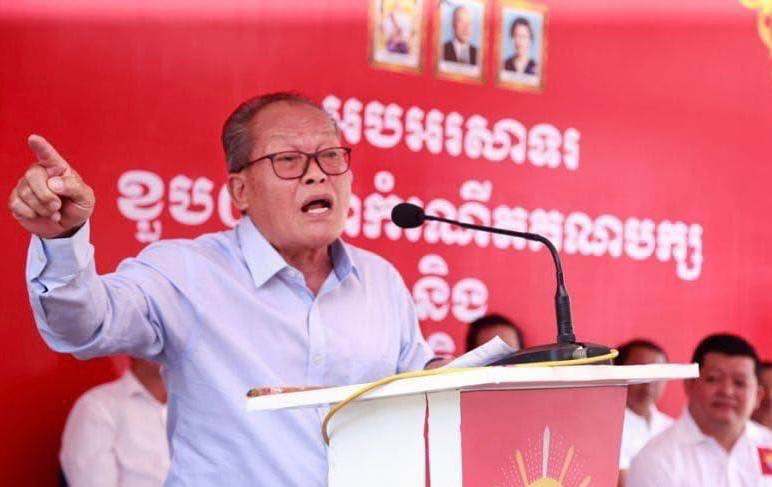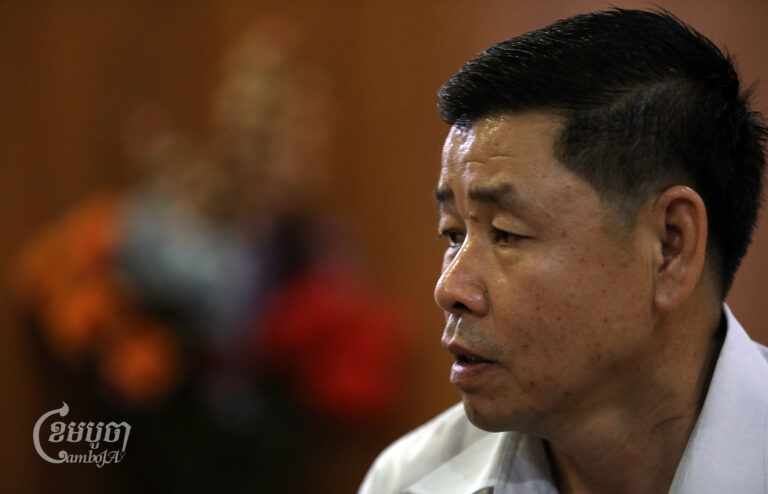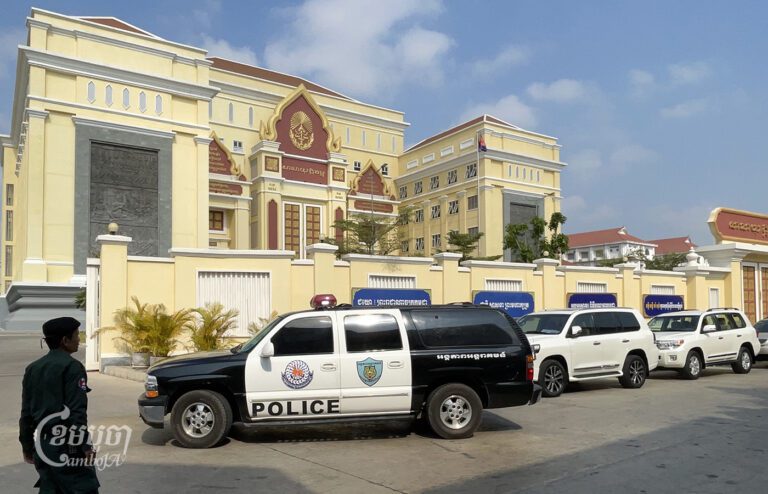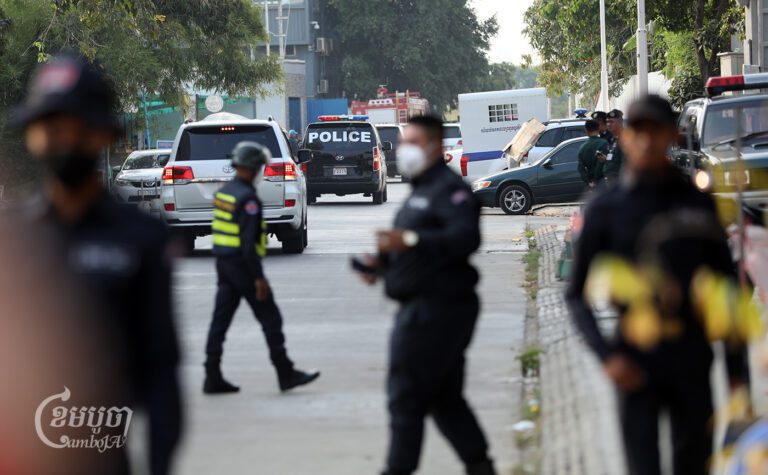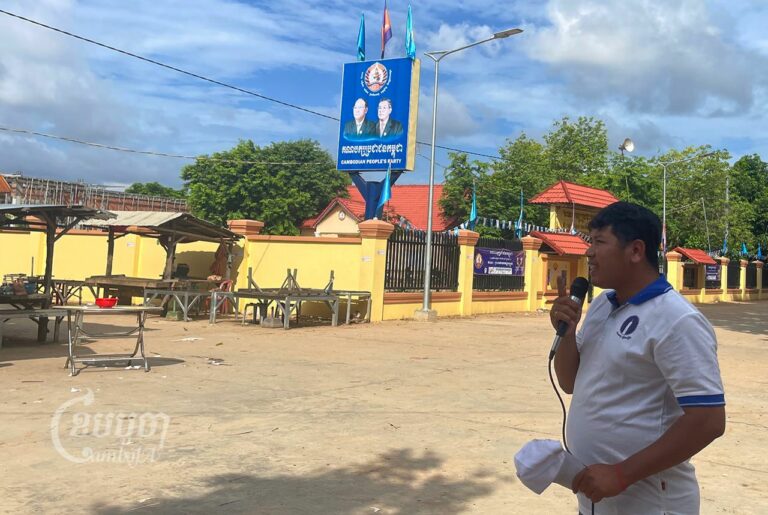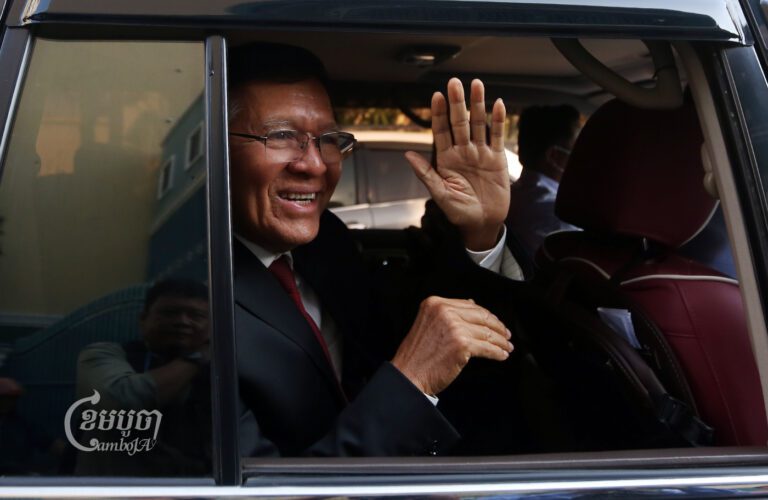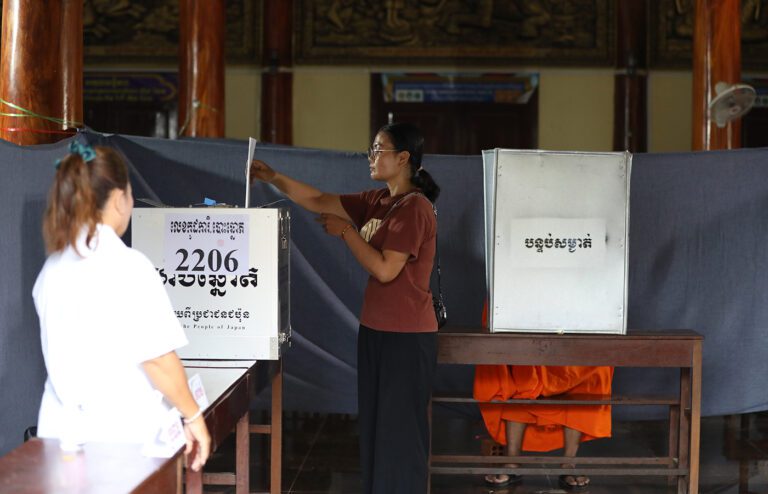Nearly three years after ex-CNRP leader Kem Sokha’s treason trial began, prosecutors called their first witness on Wednesday, questioning a top opposition adviser about foreign organizations’ roles in the creation of the outlawed opposition CNRP.
Deputy prosecutor Chhay Hong asked Kong Korm, former president of the opposition Sam Rainsy Party and current senior adviser to the SRP’s rebranded Candlelight Party, if the U.S. nonprofit International Republican Institute and other foreign organizations promoted the merger between Sokha’s Human Rights Party and the Sam Rainsy Party.
The two opposition parties joined together to form the CNRP during a meeting in July 2012 in the Philippines.
“I had met with IRI representative [and late U.S. senator] John McCain since 1996, and…[IRI] had gradually consulted to help Sam Rainsy,” Korm said.
IRI, founded in 1983 by former U.S. president Ronald Reagan as part of the National Endowment for Democracy, aims to promote democratic governance, including by strengthening political parties in more than 100 countries, according to its website.
“IRI helped with the [CNRP] party’s internal structure, strengthening democracy at the grassroot levels,” Korm said in court.
Judge Koy Sao asked Korm if foreigners and NGOs had secretly helped create the CNRP.
“I only knew IRI had discussions with CNRP leaders,” Korm replied.
He said IRI advised Sokha not to create the Human Rights Party and join with Sam Rainsy’s party instead.
Korm added that the 2012 meeting in the Philippines, which led to the creation of the CNRP, was supported by the German think tank Konrad Adenauer Stiftung. He said KAS provided support to secure a meeting place in Manilla for the Human Rights Party and Sam Rainsy Party to hold discussions leading to the creation of the CNRP.
Five other witnesses were scheduled to testify on Wednesday, including Cambodian Center for Human Rights director Chak Sopheap, but they did not take the stand. Sokha was the founding director of CCHR.
During Wednesday’s hearing, Korm backtracked when Sokha’s defense lawyer Chan Chen asked about proof that foreign NGOs had inspired the political merger leading to the CNRP.
“I do not have evidence,” Korm said.
He refused to answer questions about the newfound political alliance between the Candlelight Party and opposition Khmer Will Party, whose president Kong Monika is Korm’s son.
Last week, prosecutors interrogated Sokha about a 2016 nonviolent political advocacy training that CNRP officials and activists joined in Indonesia.
While Sokha denied awareness of the training, prosecutors suggested it was part of a “color revolution” conspiracy in which foreign powers covertly maneuvered to unseat the long-ruling CPP.
The former main opposition CNRP was dissolved by the Supreme Court in 2017, following government statements about an alleged “color revolution” plot.
Sokha was arrested two months prior to the party’s dissolution. He has denied the treason charges against him since his trial began in January 2020.
Yi Soksan, a senior monitoring at rights group Adhoc who attended the trial this week, said Korm’s testimony was not clear nor strong evidence against Sokha.
“Sometimes, the witness said that he knew, and sometimes, he said he did not know,” Soksan said. “The witness testimony seemed unclear.”


